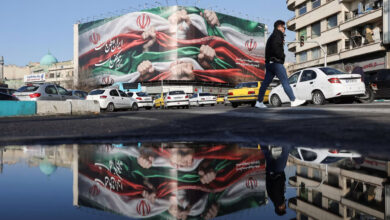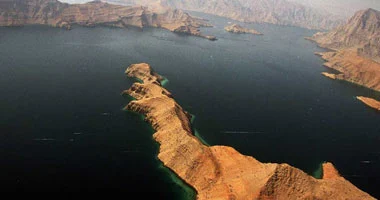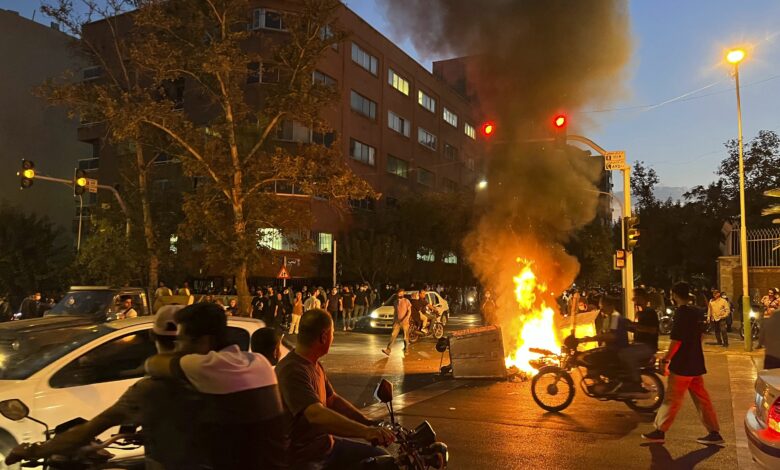
Iran’s former president Mohammad Khatami has urged the current government to be more lenient with protesters, amid ongoing nationwide demonstrations representing the biggest challenge to the Islamic Republic in decades.
The reformist said the government must listen to the demonstrators before it is too late, in a message on Tuesday ahead of Students’ Day – which marks the anniversary of the murder of three university students in 1953 by Iranian police under Shah Mohammad Reza Pahlavi’s regime.
“I advise the officials to appreciate this presence and instead of dealing with it inappropriately, take a softer approach and listen to them and with their help, recognize the wrong aspects of governance before it is too late for them to move towards good governance,” said Khatami, regarding the government’s handling of the protests.
The anti-government demonstrations were sparked by the death of a 22-year-old Kurdish Iranian woman in September. Mahsa Amini died after she was arrested by the morality police for allegedly not wearing her hijab properly.
Authorities have since unleashed a deadly crackdown on demonstrators, with at least 448 people having been killed in the unrest, according to the organization Iran Human Rights.
CNN cannot independently verify the arrest figure or the death toll – precise figures are impossible for anyone outside the Iranian government to confirm. Different estimates have been given by opposition groups, international rights organizations and local journalists.
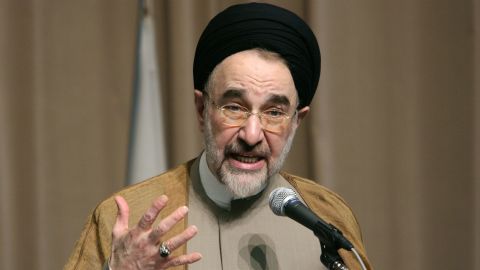
Khatami said the principles of freedom and security do not have to be mutually exclusive.
“Just as freedom is an urgent need and an important demand, security is also important for the country.”
“It should not be allowed that freedom and security to be placed against each other, and as a result, freedom is trampled under the pretext of maintaining security, or security, which is a condition for the establishment of order and good order in society, is ignored in the name of freedom,” Khatami explained.
The former leader also emphasized that it is important to pay “attention to the rightful demands of the society.”
Khatami appeared to place blame on Iran’s government a few weeks ago when he tweeted that “bitter events” in Iran were being caused by the “faulty and incorrect mechanism and method of governance.”
Khatami also called the phrase “Zan (woman), Zendegi (life), Azadi (freedom),” a beautiful message “that shows the movement towards a better future.” The phrase – “Woman, Life, Freedom” – is a chant taken from the Kurdish slogan Jin Jiyan Azadi and has been echoed throughout the demonstrations as a call for greater freedoms for women in Iran.
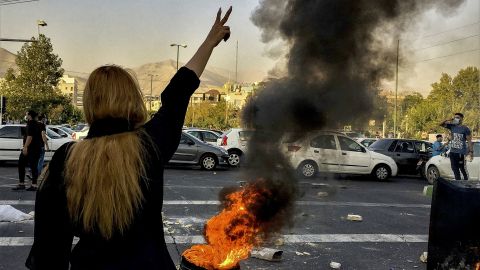
Other Iranian public figures have also recently called on the government to take action to listen and protect protesters.
Prominent Iranian Sunni cleric Molavi Abdolhamid Ismaeelzahi invoked the country’s judiciary to investigate and prosecute individuals abusing women in prisons.
A CNN investigation revealed the abuse endured by female prisoners in Iran’s notorious detention facilities, with survivors and eyewitnesses who left the country speaking out about the sexual assault they suffered.
In a tweet on Tuesday, Ismaeelzahi said, “news about the sexual assault of female prisoners with the intention of humiliating, suppressing and forcing them for confessions have been reported in the media, and some prisoners’ accounts confirm this.”
“If proven, the biggest corrupters on earth are the perpetrators of these crimes,” he said, referring to a charge given to some protesters who were sentenced to death.
“It is necessary for the judiciary to prosecute these people and punish them severely.”
CNN’s Alaa Elassar contributed reporting.


